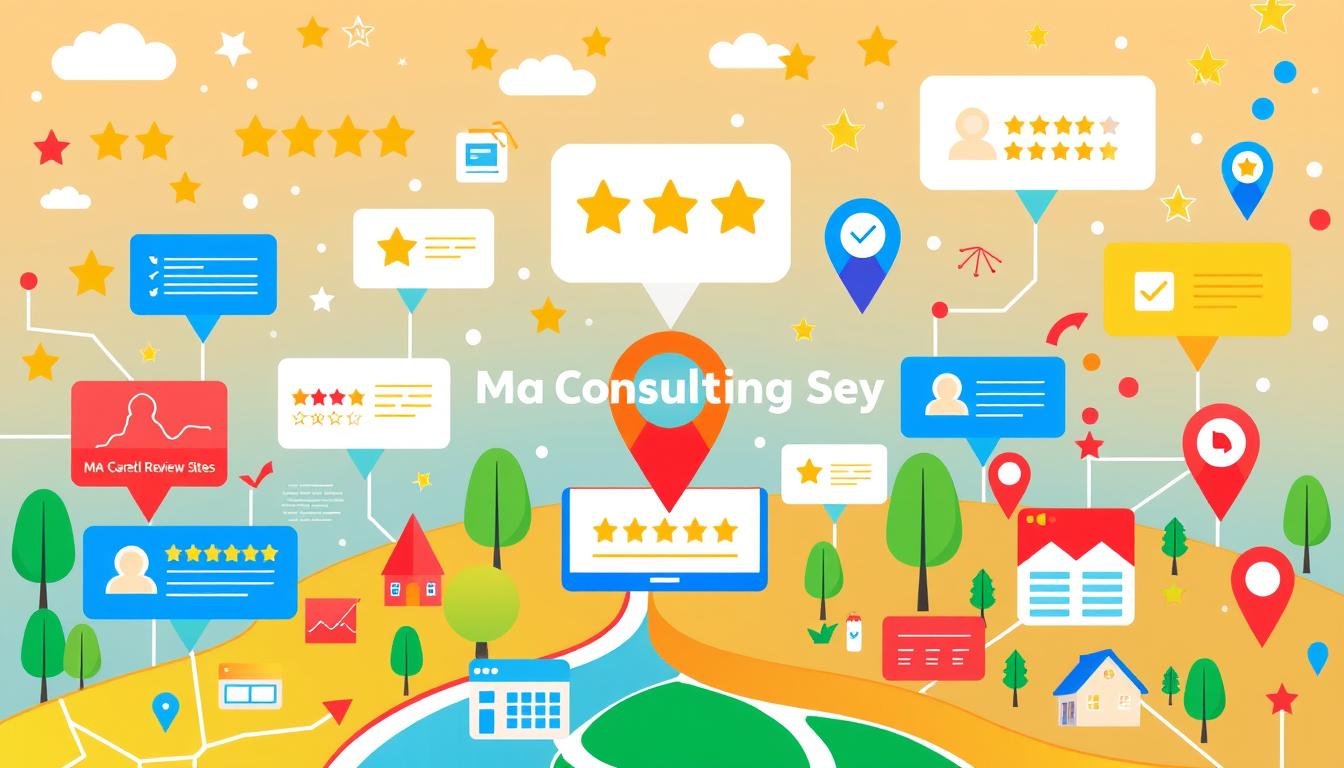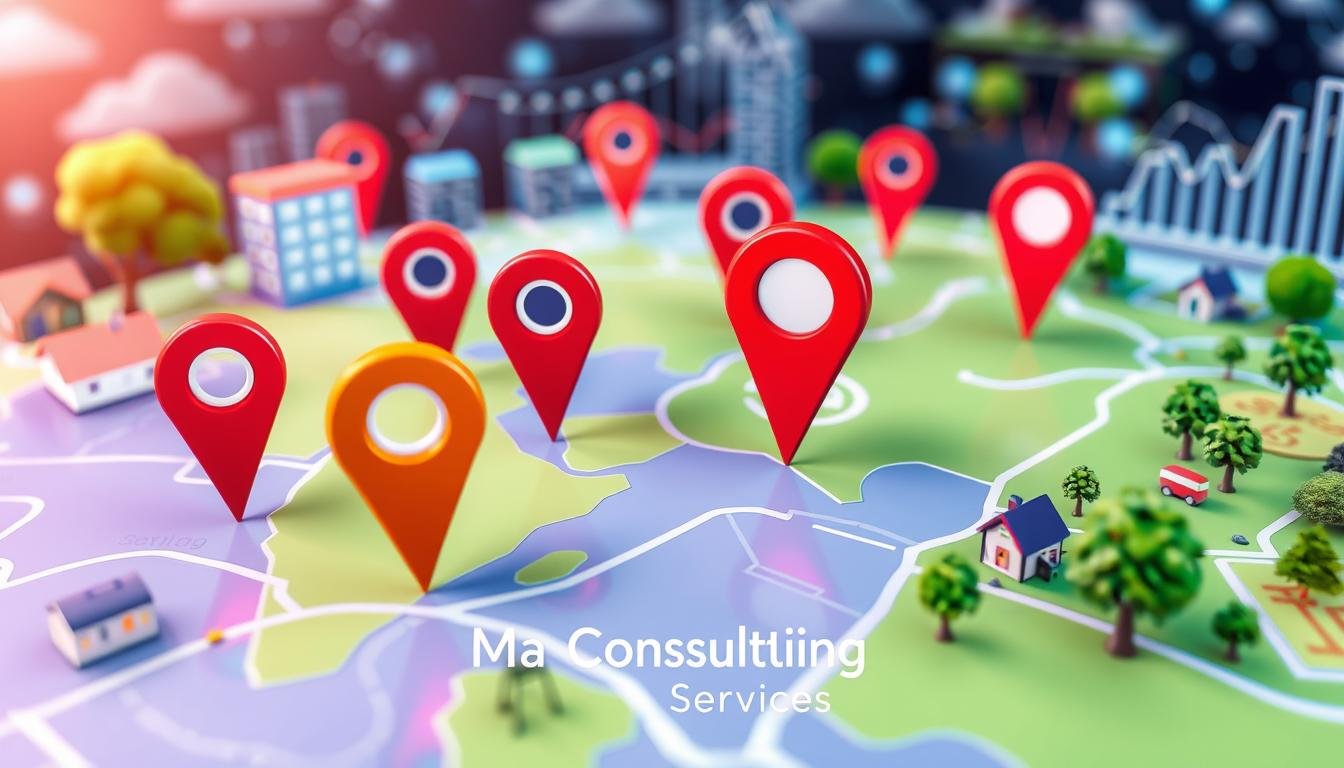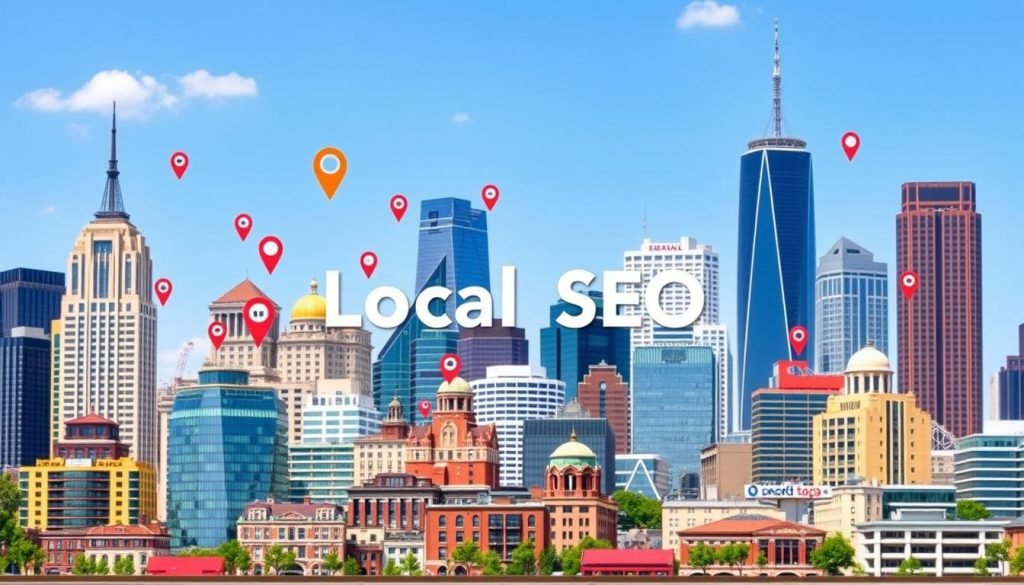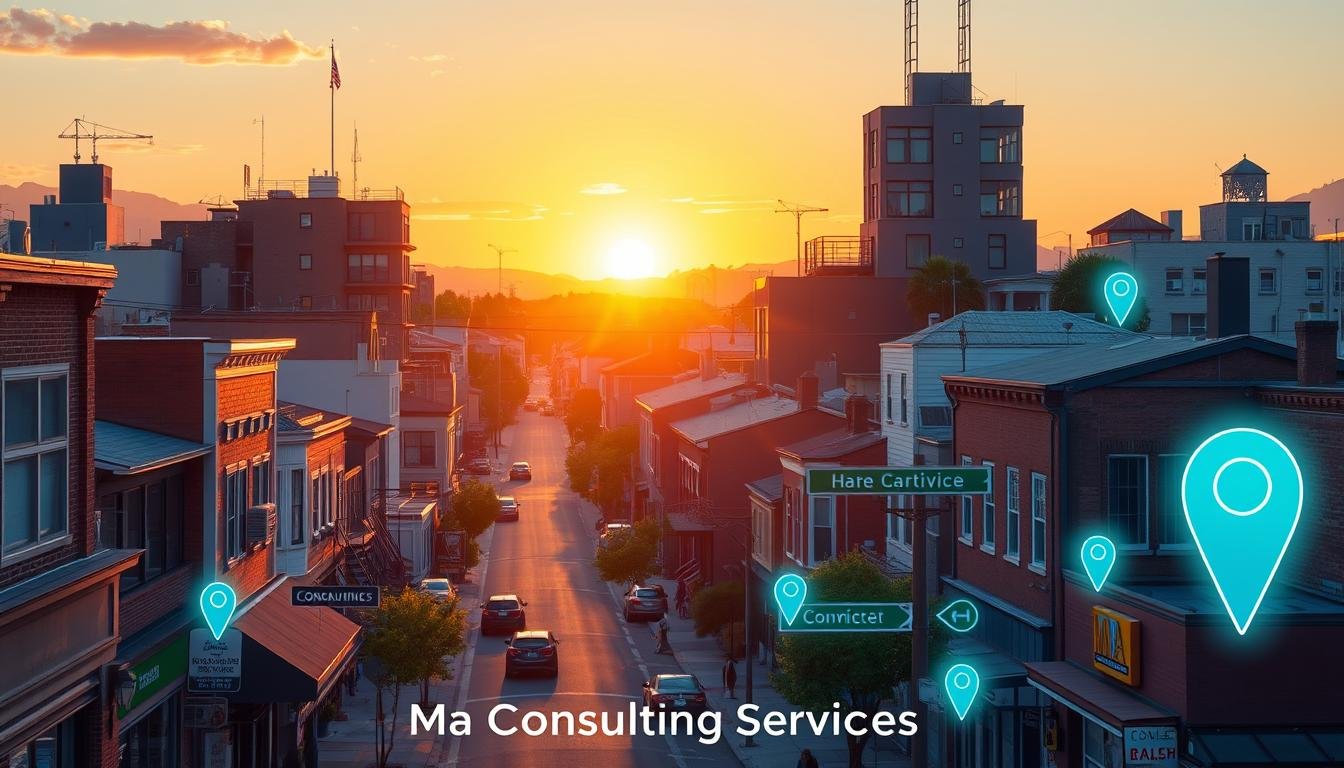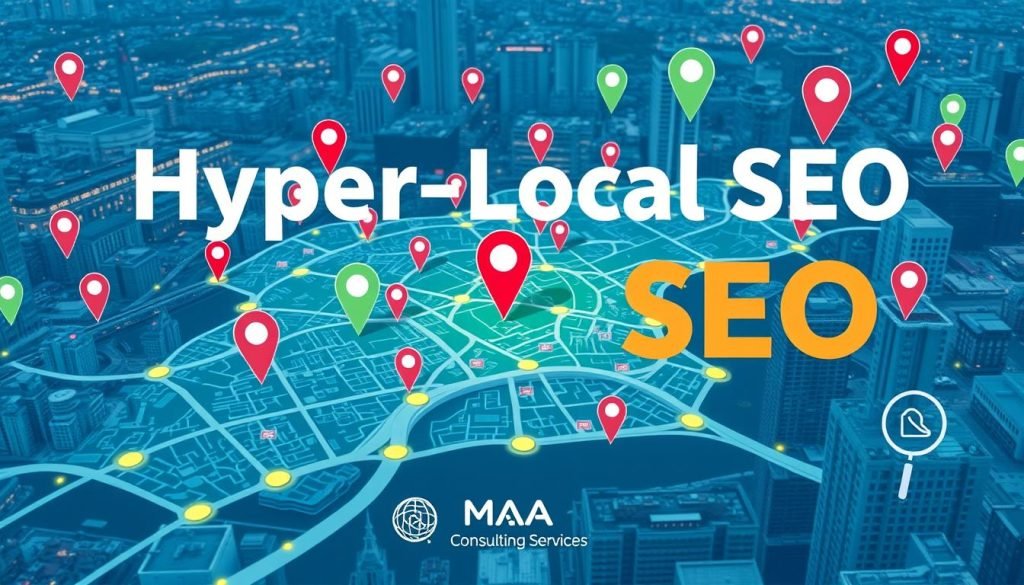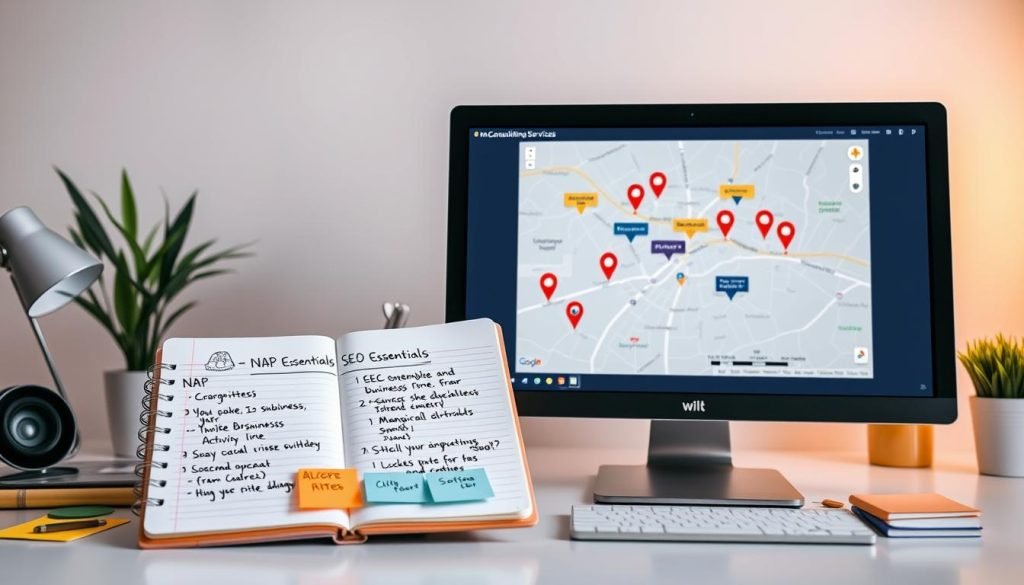Did you know 88% of people trust online reviews as much as personal recommendations for local businesses? This fact shows how important industry-specific review sites are for local SEO. As a business owner, knowing how to use these sites can greatly improve your online presence and gain customer trust.
Niche review websites are key for businesses wanting to stand out locally. They let you show your expertise and reach people looking for your services. Using these sites can really help your local SEO and bring in more qualified customers.
These review sites do more than just share customer feedback. They help search engines trust your site more, making it more visible in local searches. When people see good reviews from trusted sources in your field, they’re more likely to pick your business over others.
Key Takeaways
- 88% of consumers trust online reviews as much as personal recommendations
- Industry-specific review sites significantly impact local SEO performance
- Positive reviews on targeted platforms can boost website visibility and credibility
- Niche review websites help businesses showcase industry expertise
- Leveraging industry-specific reviews can lead to increased qualified leads
Understanding Industry-Specific Review Sites
Industry-specific review sites are key in today’s digital world. They focus on certain business areas, giving specific feedback and ratings. Let’s explore what these sites are and why they’re important for local communities.
What Are Industry-Specific Review Sites?
Vertical review directories are platforms for specific industries. They differ from general review sites by offering detailed insights into certain sectors. For example, Avvo.com is a site for lawyers, providing expert reviews and ratings to help customers choose wisely.
Importance in Local Communities
These specialized review forums are crucial for local areas. They help people make better choices by sharing experiences from others in their area. For instance, Michigan Avenue Primary Care in downtown Chicago got great reviews for their caring and convenient service.
The value of industry-specific review sites is clear in the numbers:
- 70% of people read multiple reviews before choosing a business
- Only 53% consider patronizing a business with less than 4 stars
- More than half of business-goers visit an establishment within 48 hours of an online search
These sites offer targeted, trustworthy info. They help close the gap between businesses and consumers in areas like healthcare, law, and accounting.
Benefits of Industry-Specific Review Sites for Local SEO
Industry-specific review sites are key for boosting your local SEO. They offer unique benefits that can greatly improve your online presence and business growth.
Enhanced Online Visibility
These review sites boost your visibility in local searches. With 81% of people using Google to check out local businesses, being on these sites is crucial. They give you more chances for potential customers to find you, especially when they’re looking for specific services in your area.

Building Trust and Credibility
Specialized review forums help build trust and credibility for your business. Half of consumers trust online reviews as much as personal recommendations. By showing real customer experiences in your sector, you’re more likely to draw in potential clients. This is key since 56% of consumers prefer small, local, independent businesses over big brands.
Targeted Audience Engagement
Industry-centric review hubs help you engage with the right audience. They let you connect with people looking for your products or services. With 59% of search users checking Google before buying in-store, being on these platforms can bring more foot traffic. Engaging with your audience through these sites can lead to more sales and higher conversion rates.
- 72% of consumers who perform a local search visit a store within 5 miles
- 76% of consumers plan to shop more locally over the next 12 months
- 88% of consumers trust online reviews as much as personal recommendations
By using these industry-specific review sites, you can enhance your local SEO, build a strong online reputation, and attract more local customers to your business.
Strategies to Leverage Review Sites for Your Business
In today’s digital world, using trade-specific rating portals can really help your local SEO. With 93% of people reading reviews before buying, these sites are key in making choices.
Optimizing Your Company Profile
First, make sure your profile on niche review sites is full and current. Add the right business info, interesting descriptions, and keywords. For example, Groove’s high ranking on G2 for 17 quarters shows the power of a good profile.
Being consistent on all sites helps build trust and boosts your local SEO ranking.
Encouraging Positive Reviews
Try to get reviews from happy customers. Aim for at least 35% of reviews, which is more than the usual 15-20% from one-time campaigns. Always-on review campaigns work better than one-time efforts.
Remember, 92% of B2B buyers are more likely to buy after seeing a trusted review. This shows how important it is to get positive feedback on specific review sites.
Monitoring and Responding to Feedback
Keep an eye on and answer all reviews, good and bad. Quick replies to negative reviews can protect your reputation. Use review site insights to improve your company’s image and find what makes you stand out.
By engaging with feedback on trade-specific sites, you show you care about customer happiness. This helps your local SEO too.
FAQ
What are industry-specific review sites?
Industry-specific review sites are websites that focus on certain business sectors. They give feedback and ratings for specific industries. This helps potential customers and is key for businesses to manage their online image.
How do industry-specific review sites impact local SEO?
These sites boost a business’s online presence and trust. They help attract the right audience. Positive reviews can also improve a business’s local search rankings.
Why are industry-specific review sites important for local communities?
They offer insights into local businesses. This helps people make better choices. It makes the community more connected and informed.
How can businesses leverage industry-specific review sites effectively?
Businesses should update their profiles and ask happy customers for reviews. They should also reply to all feedback. This shows they care about customer satisfaction.
What are some examples of industry-specific review sites?
Examples include review sites for specific sectors. These platforms give targeted feedback for certain industries. They help businesses connect with their audience.
How do industry-specific review sites differ from general review platforms?
They focus on specific sectors, unlike general review sites. This means they offer more relevant feedback. It helps businesses reach their target audience better.

